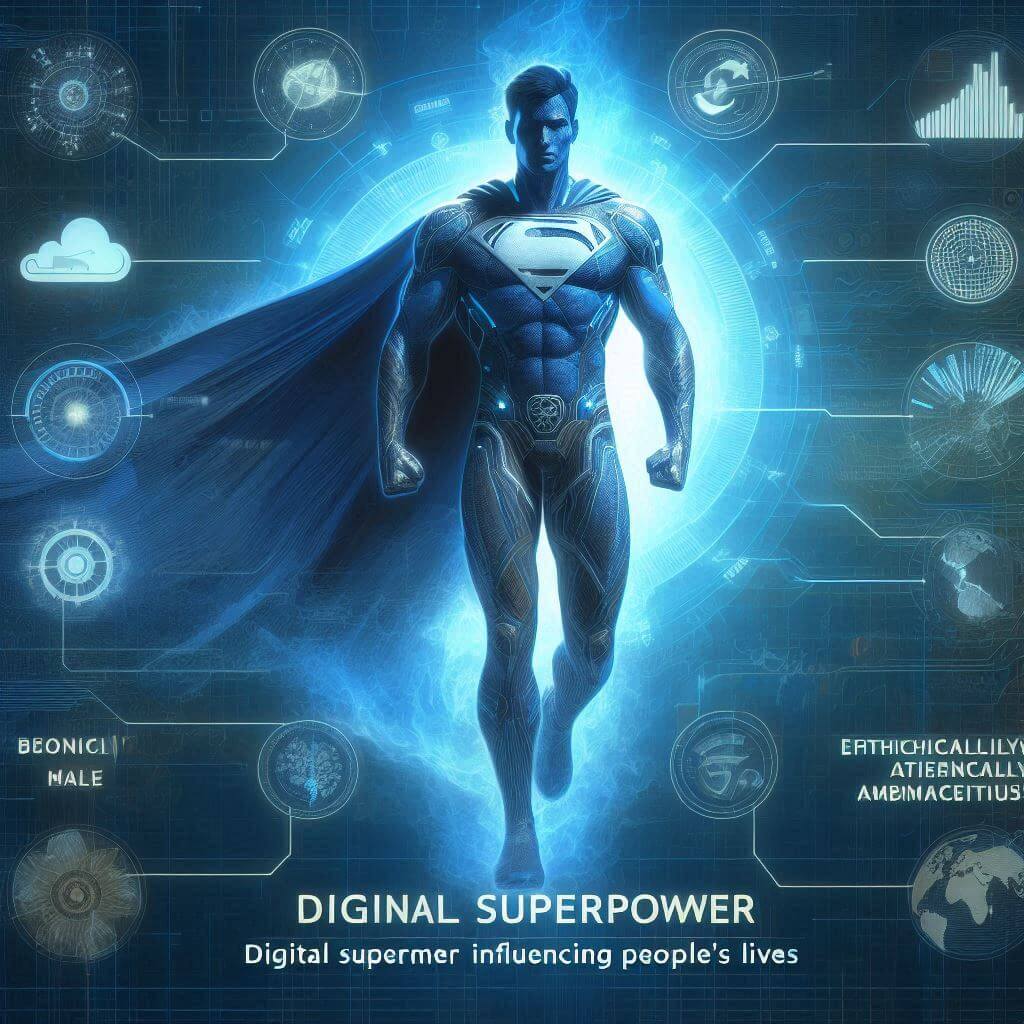The Rise of the Digital Superpower

eyesonguyana
Amsterdam, September 21st, 2024 – In his thought-provoking TED Talk, Ian Bremmer explores the idea that the next global superpower isn’t a nation, but rather the digital order dominated by technology companies1. As these companies continue to grow and integrate into every facet of our lives, their influence becomes increasingly profound. This article delves into the pros and cons of this digital dominance and offers a hopeful perspective on how we can reclaim our autonomy.
The Pros of Technological Integration

Technology has undeniably transformed our lives for the better in many ways. Here are some key benefits:
- Enhanced Connectivity: The internet has made it possible to connect with anyone, anywhere, at any time. This has revolutionized communication, making it easier to maintain relationships and collaborate globally2.
- Increased Productivity: Digital tools and platforms have streamlined workflows, making businesses more efficient and productive. This has led to economic growth and innovation3.
- Access to Information: The vast amount of information available online has democratized knowledge, allowing people to learn and grow in ways that were previously unimaginable2.
- Improved Quality of Life: From healthcare advancements to smart home technologies, digital innovations have significantly improved our daily lives2.
The Cons of Digital Dominance

However, the pervasive influence of tech companies also comes with significant drawbacks:
- Privacy Concerns: With so much of our personal data being collected and analyzed, privacy has become a major concern. Tech companies often have access to intimate details of our lives2.
- Dependence on Technology: Our increasing reliance on digital tools can lead to a loss of essential skills and a sense of helplessness when technology fails2.
- Economic Disparities: While technology can drive economic growth, it can also exacerbate inequalities. Those without access to digital tools are often left behind4.
- Mental Health Issues: The constant connectivity and pressure to be online can lead to stress, anxiety, and other mental health problems2.
Finding Balance in a Digital World
To mitigate the negative impacts of digital dominance, we must strive for a balanced approach:
- Digital Literacy: Educating ourselves and others about the responsible use of technology is crucial. This includes understanding privacy settings, recognizing misinformation, and knowing when to disconnect2.
- Regulation and Accountability: Governments and regulatory bodies need to ensure that tech companies operate transparently and ethically. This includes enforcing data protection laws and holding companies accountable for their actions4.
- Promoting Digital Inclusion: Efforts must be made to bridge the digital divide, ensuring that everyone has access to the benefits of technology4.
- Fostering Human Connections: While digital tools can enhance communication, it’s important to prioritize face-to-face interactions and maintain meaningful relationships outside of the digital realm2.
Conclusion: Reclaiming Our Autonomy

While technology has the potential to greatly enhance our lives, it’s essential that we remain vigilant and proactive in managing its influence. By promoting digital literacy, enforcing regulations, and fostering human connections, we can ensure that technology serves us, rather than the other way around. In doing so, we can escape the dominion of tech companies and create a future where digital tools empower rather than control us.
1: Ian Bremmer’s TED Talk 3: World Economic Forum 2: Pew Research Center 4: United Nations









